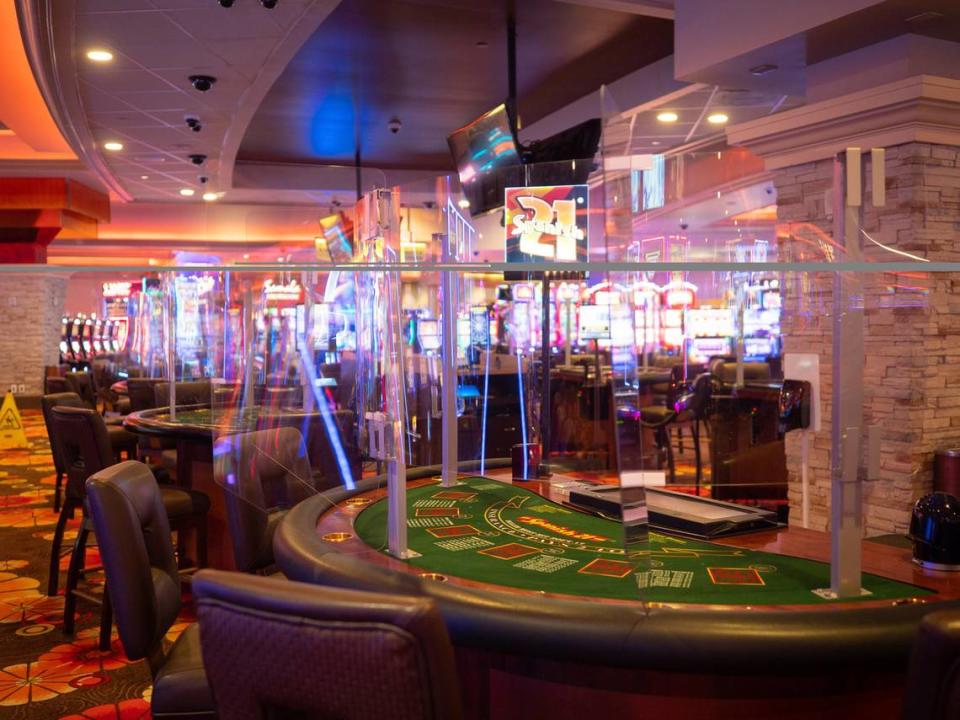Should insurance company have granted Chumash Casino COVID claim? Here’s what court said
Appellate judges sided with an insurance company against the Santa Ynez Band of Chumash Indians in a case seeking payout for losses related to COVID-19.
The Second District Court of Appeal sided with Lexington Insurance Co. after the Chumash filed a lawsuit in May 2020 for denial of insurance coverage under a business interruption provision.
“We conclude, among other things, that Chumash did not present sufficient evidence to show that the COVID-19 virus caused physical property damage to its casino and resort so as to fall within the property damage coverage provisions of the Lexington insurance policy,” the opinion by Presiding Justice Arthur Gilbert stated.
Justices Kenneth Yegan and Hernaldo Baltodano concurred.
The 431-page civil complaint, filed by attorneys from Roxborough, Pomerance, Nye and Adreani in Woodland Hills, sought monetary, non-monetary and punitive damages with the amount demanded exceeding $25,000.
In its response, Lexington Insurance, represented by Gibson, Dunn & Crutcher LLP of Los Angeles, denied the allegation.

Court documents note that the Chumash Casino Resort includes a 320-room hotel, a 145,000-square-foot gaming floor, 2,500 video gaming machines, 50 table games, a poker room and a bingo room.
The facility also has four restaurants, a 325-seat buffet, a 125-seat café, a 145-seat food court and a 125-seat fine dining restaurant. Additionally, the facility has a 1,500-seat multipurpose venue known as the Samala Showroom.
The Chumash Casino Resort employs “an average of 1,767 people,” according to the appellate opinion, and recorded an “average 9,012 patrons per day on weekdays, and 11,392 per day on weekends,” according to court documents.
COVID-19 prompted closures from mid-March 2020 to early June 2020. Before reopening, several steps were taken, including the installation of temperature check machines, plastic barriers at “gaming machines and tables,” and barriers “between tables in employee break areas.”
The Chumash filed a claim alleging property damage, contending that COVID-19 made the facilities “unsafe and unusable.”
Judge James Rigali granted a summary judgment in favor of Lexington in May 2022, with the ruling stating in part, “As a matter of California law, COVID-19 does not cause ‘direct physical loss or damage’ to property.”
The Chumash were not alone in seeking insurance payout with other cases filed in state and federal courts by businesses from different industries.
“We do not take issue with recent California decisions holding that business plaintiffs may be able to show that the COVID-19 virus caused damage to their property so as to fall within the property damage provisions of a business insurance policy,” the appellate opinion states.
“The issue here, however, is whether Chumash presented sufficient evidence to show that the virus actually caused physical damage to its property.”
The initial complaint said the Chumash sought damages for “the loss of business income, amounts expended for payroll, remediation, and other expenses, in an amount according to proof at trial, but in excess of $100,000.”
In a different but similar case, the California Supreme Court has been asked to answer the broader question, “Can the actual or potential presence of the COVID-19 virus on an insured’s premises constitute ‘direct physical loss or damage to property’ for purposes of coverage under a commercial property insurance policy?”
Noozhawk North County editor Janene Scully can be reached at jscully@noozhawk.com .

